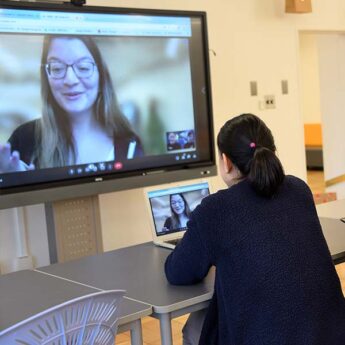The Harris Firm, an intellectual property (IP) law firm that specialises in US patent matters, advises on the options available when monetising patents.
In Japan, conglomerates dominate industry. As the global economy becomes more complex and intertwined, the ability to monetise their patents is increasingly important.
Ron C. Harris, Jr., principal at The Harris Firm, explained that to do this, it is necessary to “obtain higher-quality patents and, as always, before ideas are disclosed”.
In particular, “the ability to innovate and come up with new and nimble businesses is more important”, he said.
As Harris explained, what is needed, on the government level and by each business entity, is an approach that allows firms to quickly enforce patents and obtain injunctive relief and sufficient monetary relief for infringement.
Crucial steps
Antti Sonninen, chief executive officer of Slush Tokyo, a non-profit movement looking to bring startups, students, investors and media together to take businesses to the next level, highlighted the potential in Japan within the startup industry. “Ambition is a good start”, he began, “but once you have global ambitions, you need a set of practical tools”.
Patents, in particular, will ensure that whatever has been created will be protected. This applies to both small and large firms.
“Not protecting what you have invested in makes you vulnerable”, Sonninen emphasised.
Harris endorsed the need for startups to look for proper non-disclosure agreements when looking for investors and partners. This is crucial when determining the proper defensive measures that need to be taken.
“Just because someone may not disclose your idea doesn’t mean they could not invent off of it—and springboard off of it—to formulate their own ideas”, he said. If this happens, it is easy for them to form a “picket fence of patents” around you.
Firms that do not take basic steps to protect their ideas will find themselves unable to monetise their patents, whether through obtaining operating capital, selling rights or enforcing rights.
Push and pull
Looking at the needs of non-practicing entities, the “demand for more robust types of protection becomes apparent”, Harris explained.
He broke down the quality of patents into three approaches: a cross-licensing and defensive approach, a monopoly licensing approach and a pure licensing approach.
Luca Escoffier, project manager at the EU–Japan Centre for Industrial Cooperation, runs the Technology Transfer Helpdesk, which facilitates the contact between universities (originators) and firms.
“There are mainly two ways in the technology transfer world to deal with this kind of operation”, Escoffier said. One he describes as a push approach and the other as a pull approach.
Escoffier said that, along with establishing relationships with firms interested in licensing university technologies (the pull approach), they are looking to bring forward a push approach, which looks at “collecting technologies from universities that can then be promoted in a single space, the online portal of the Helpdesk”.
Future in Japan
“I would like to see Japan increase damages and create a system of discovery”, Harris said. Evidence available during litigation should be increased so that it’s easier to quantify the damages when a patent is enforced.
Japan must balance its fear of those looking to exploit the patent system with its desire to allow businesses to monetise their patents. The latter is where The Harris Firm provides expertise.
“It’s in the interests of every country to allow for fertile fields of startups”, Harris explained, “because without competition you’re not going to get that many advances”.
“This is one of the best times to be starting a firm in Japan”, added Sonninen.
Ultimately, Harris urged firms to perform a “basic audit of their ideas” that could be patented or any trade secrets that could be protected.







